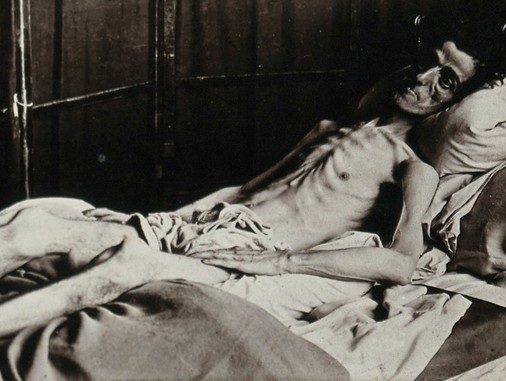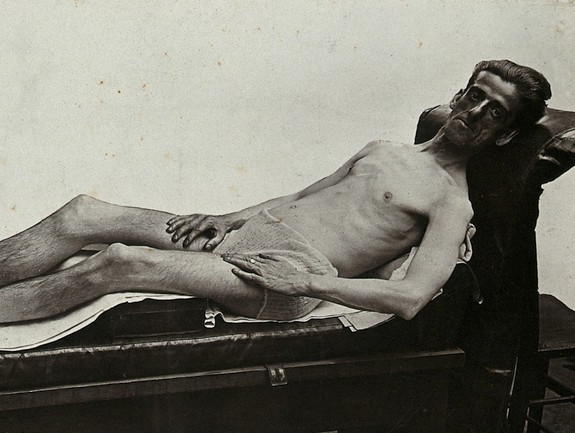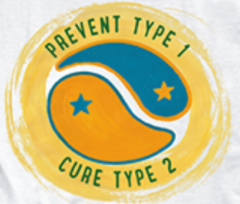A Deadly Shortage of Insulin
If you have thin diabetes (type 1 diabetes mellitus), it means that your pancreas is not making enough insulin to keep you alive. In the days before insulin therapy, it was always fatal. Most patients would rapidly progress to a condition called diabetic ketoacidosis and then to coma and death. There was no cure, and no effective treatment. All that could be done was to put the patient on a starvation diet. This was a miserable ordeal. The patient would starve to death slowly, over the course of about a year, rather than dying within a matter of days to weeks.

A man who was dying of type 1 diabetes in the 1920s.
The Discovery of Insulin
By the late 19th century, scientists knew that type 1 diabetes was linked to some problem in the pancreas. They could even cause diabetes in dogs by removing the pancreas. In the 1920s, two Canadian scientists, Dr. Frederick Grant Banting and medical student Charles Herbert Best isolated a pancreatic extract that would restore normal blood sugar levels in a diabetic dog. With help from a chemist names James Bertram Collip, they were able to turn this extract into a drug. The active principle in the extract was a protein hormone that is now called insulin.

Frederick Grant Banting. Courtesy of Wellcome Collection.

Charles Herbert Best. Courtesy of Wellcome Collection.
The Effect of Insulin
Insulin allowed doctors to snatch many patients out of the jaws of death. Yet insulin is not a cure for type 1 diabetes. It merely turns type 1 diabetes from an immediate death sentence to a still-dangerous chronic disease.

The same patient after receiving insulin. Insulin lowers your blood sugar, but it also allows you to build muscle and store fat. When people are fasting, they normally have low insulin levels. That is why the starvation diet prolonged the lives of people with type 1 diabetes, in the days before insulin. In this case it probably allowed him to live long enough for insulin to save his life.
Why People With Diabetes Need High-Carb Diets
The high blood sugar in people with diabetes does not come from eating a high-carbohydrate diet. In fact, a high-carb diet can actually help you reduce your blood sugar. The reason is simple: High-carbohydrate diets make the body more sensitive to insulin. When people with type 1 diabetes switch to a high carbohydrate diet, they typically have to reduce their insulin dose by about 30%.

